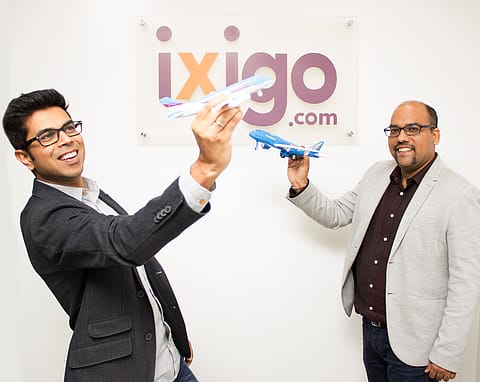ixigo plans to scale up metro ticketing services across multiple cities
The company isn’t chasing immediate revenue from this partnership, instead it is focused on driving higher user engagement and retention by solving real problems like last-mile connectivity.

Travel company, ixigo, today launched the facility to book Delhi Metro tickets on its platform in partnership with the Delhi Metro Rail Corporation (DMRC) and the Open Network for Digital Commerce (ONDC).
Over the next few quarters, ixigo aims to integrate metro ticketing services across multiple cities such as Mumbai, Jaipur and Bengaluru using the ONDC framework. “I can't, at this time, think of which one is next but we will pick up and launch the metros available on ONDC over time,” said Aloke Bajpai, chairman, managing director and group CEO of ixigo.
“Over the next couple of quarters you should see us go live on more metros. There is a road map towards integrating those,” added Bajpai, without sharing further details.
The integration was executed in just four to five weeks, setting a speed record, according to ONDC’s CEO. Bajpai sees this as the first of many such integrations aimed at making ixigo more indispensable to users.
But the company isn’t chasing immediate revenue from this partnership, instead it is focused on driving higher user engagement and retention by solving real problems like last-mile connectivity.
“We don’t see this as a direct revenue play,” said Bajpai. “Our objective is to increase platform engagement and retention by solving real problems, like last-mile connectivity. More use cases mean higher frequency of app usage, which over time translates into stronger customer retention and eventual revenue streams.”
The new feature enables users to book QR-based metro tickets directly through the ixigo platform, with in-app payments making the process seamless. This move is part of a broader strategy to transition from being just a ticket seller to becoming a utility-driven, AI-powered travel assistant that serves customers throughout their journey.
Recommended Stories
Currently, the integration is live within ixigo’s Trains app and the Confirm Ticket app, which specialise in train bookings. Bajpai said the rollout will soon expand to other parts of ixigo’s ecosystem, including flight and bus services via the AbhiBus app.
“What we are really building is an end-to-end customer journey,” Bajpai added. “If someone is arriving in Delhi from Chennai, they don’t just need an intercity ticket; they need a way to reach their final destination in the city. Our large user base, running into millions in Delhi NCR alone, gives us a strong starting point to introduce last-mile solutions.”
ixigo already commands a dominant position in India’s online travel space, with 544 million annual active users in the last financial year. In the train segment, the platform accounts for over 60% of all tickets sold outside the IRCTC via OTAs. Within travel verticals, ixigo claims to hold the largest market share in trains, the second largest in buses, and ranks third in flights. Bajpai added, “We are also the fastest growing player across all these verticals.”
The company reported a consolidated net profit of ₹18.9 crore in the first quarter of FY26, an increase of 27% from ₹14.9 crore in the year-ago quarter. Meanwhile, an increase in its topline resulted in its strongest quarterly performance yet, kicking off FY26 with a 73% year-on-year jump in revenue to ₹314.5 crore.
(INR CR)
“Our vision is not just to sell tickets,” Bajpai shared. “It’s about creating utility and experiential use cases, solving problems before, during, and after the trip, and ultimately building an intelligent, agentic AI layer to guide the user.”